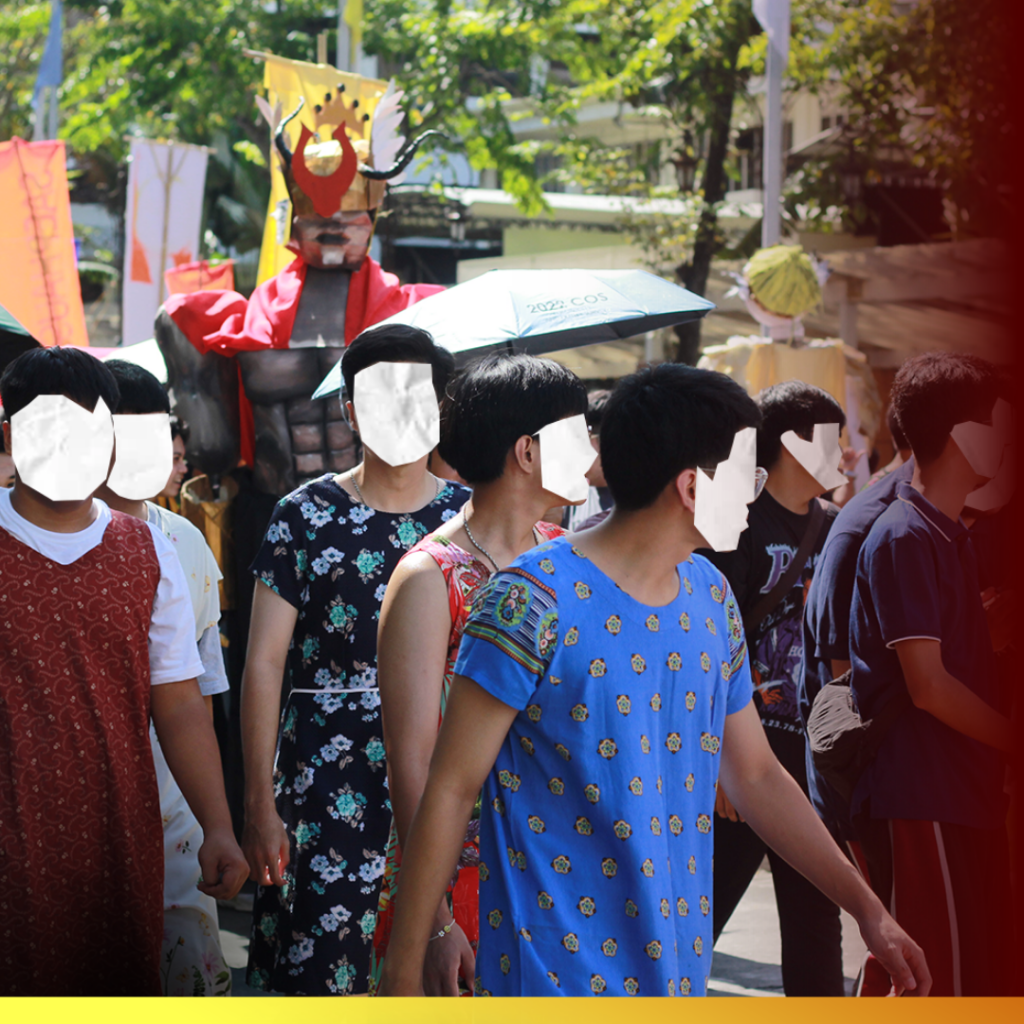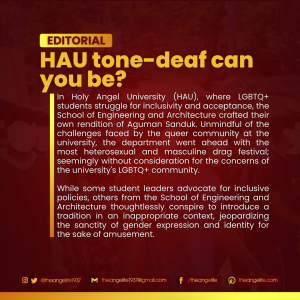
 Traditions serve as unwavering ties to our origins, strengthening the very foundation of our culture. However, when traditions are misplaced, they risk becoming cultural discord, a symphony of insensitivity, and a deafening echo of obtuseness.
Traditions serve as unwavering ties to our origins, strengthening the very foundation of our culture. However, when traditions are misplaced, they risk becoming cultural discord, a symphony of insensitivity, and a deafening echo of obtuseness.
An age-old tradition, Aguman Sanduk, which began in the 1930s, crafts a fascinating historical story. Annually in Minalin, Pampanga, it involves straight men wearing duster dresses on New Year’s Day and parading while emulating women. Originally, this tradition aimed to entertain and uplift the townsfolk during a drought and famine back in its conception.
In Holy Angel University (HAU), where LGBTQ+ students struggle for inclusivity and acceptance, the School of Engineering and Architecture (SEA) crafted their own rendition of Aguman Sanduk. Unmindful of the challenges faced by the queer community at the university, the department went ahead with the most heterosexual and masculine drag festival; seemingly without consideration for the concerns of the university’s LGBTQ+ community.
While some student leaders advocate for inclusive policies, others from the School of Engineering and Architecture thoughtlessly conspire to introduce a tradition in an inappropriate context, jeopardizing the sanctity of gender expression and id
entity for the sake of amusement.
Using the cause of women empowerment, individuals within the department’s Aguman Sanduk shamelessly exploit sexual allusions. Undermining the very principles they claim to support, and cynically using the cause as a mere pretext to further their own agendas.
What’s more disgraceful is the university administration’s approval of these actions, while simultaneously repressing initiatives that strive for equality and a campus free from gender-based discrimination. More so, its administration absurdly invokes Catholicism to justify their ban on events that promote inclusivity and gender empowerment like Pride walks.
Further, the university’s glaring hypocrisy becomes even more evident when they allow cross-dressing events exclusively for heterosexual males, while simultaneously imposing restrictions on trans students who seek to express their authentic gender identities. This paradoxical double standard underscores the institution’s entanglement in a web of contradictions and discriminatory dogmas.
Holding an unyielding grip on prejudiced beliefs and outdated homophobic doctrines, HAU fails to recognize its regressive stance in a society that is progressing towards greater inclusivity.
In a climate where trans students often endure discrimination on campus, student leaders bear the responsibility of championing the students’ welfare. Hence, departments like the School of Engineering and Architecture must put in mind that traditions demand a thoughtful and measured approach, devoid of recklessness.
Consequently, it is imperative to remember that upholding societal responsibility stands in stark contrast to being oblivious to the evolving sensitivities of our society.
